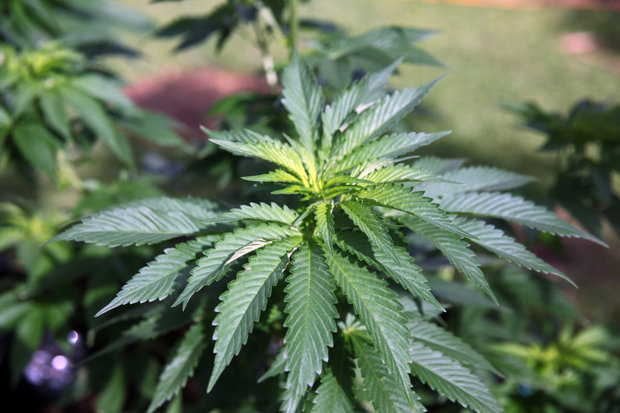You are here
Home 🌿 Medical Cannabis News 🌿 Can a worker be fired for using medical marijuana? Massachusetts Supreme Judicial Court to consider question 🌿Can a worker be fired for using medical marijuana? Massachusetts Supreme Judicial Court to consider question

The Supreme Judicial Court on Thursday will take up the question of whether a business can fire an employee for using medical marijuana outside of work.
The case, Cristina Barbuto vs. Advantage Sales and Marketing, pits businesses that want to set their own rules about drug use against workers who want to be able to treat their medical conditions with marijuana.
"It's an issue of people with disabilities who are trying to get medical treatment that the voters of Massachusetts and several other states decided was appropriate for them to be able to use, and whether employees should have to choose between their livelihoods and medical treatment that gets them relief for chronic pain or other medical issues," said attorney David Russcol, who represents a coalition of organizations that filed a brief supporting Barbuto, including the ACLU, the Union of Minority Neighborhoods, and lawyers' groups focused on employee labor law, gay rights and the rights of individuals with mental health problems.
Barbuto, 35, of Brewster, filed the case in Suffolk Superior Court in 2015.
Barbuto says she worked for only one day for Advantage Sales and Marketing, promoting products in a supermarket, before the company fired her. The reason: Barbuto failed a required drug test by testing positive for marijuana. She had previously told the company she used medical marijuana, with a doctor's recommendation, to treat symptoms of Crohn's disease.
A human resources manager told Barbuto that the company follows federal law, not state law, and marijuana is still illegal under federal law.
Barbuto sued -- arguing, among other things, that the company discriminated against her because of her disability.
A Suffolk Superior Court judge dismissed the discrimination and other charges, leaving only a charge of invasion of privacy, which the judge put on hold pending the appeal. Barbuto is asking the Supreme Judicial Court to overturn the Superior Court ruling and find that the law protects her from being fired for legally using medical marijuana.
Barbuto's attorneys argue that while Massachusetts law lets employers prohibit the use of marijuana on-site, it does not allow an employer to punish a worker for using medical marijuana when she is not at work, as long as the marijuana use does not affect her job performance. They argue in a court brief that Massachusetts' disability protection law, which requires an employer to make reasonable accommodations for a disability, gives Barbuto a right to work even after failing a drug test.
But attorneys for Advantage Sales and Marketing argue that Massachusetts' medical marijuana law only provides protection from criminal prosecution and civil penalties. It is silent on protections at work.
"In a first-of-its-kind test case, Barbuto is asking this Court to extend the scope of the Act from a narrow decriminalization statue to an expansive statute providing job protection from adverse employment actions - despite no language in the Act supporting such a result," wrote attorneys for Advantage Sales and Marketing.
The company says there is nothing to restrict a company from firing an at-will employee for using medical marijuana, even if she is not on the job at the time. Eleven other states have anti-employment discrimination protections written into their medical marijuana laws, but Massachusetts does not.
The legal groups representing employees argue in their brief that requiring a company to accommodate off-site medical marijuana use is no different than requiring a company to provide reasonable accommodations for any other disability.
But the National Federation of Independent Business, in a brief supporting the company, counters that nothing in the Massachusetts law requires companies to go against federal law and accept marijuana use.
The case is being heard months after Massachusetts voters voted to legalize the use of recreational marijuana. But the case is based specifically on the medical marijuana law and will not necessarily affect policy related to recreational marijuana use.
"I don't think it's the contention of anyone involved in the case that people who are using recreational marijuana should be entitled to the same accommodation," Russcol said.
420 Intel is Your Source for Marijuana News
420 Intel Canada is your leading news source for the Canadian cannabis industry. Get the latest updates on Canadian cannabis stocks and developments on how Canada continues to be a major player in the worldwide recreational and medical cannabis industry.
420 Intel Canada is the Canadian Industry news outlet that will keep you updated on how these Canadian developments in recreational and medical marijuana will impact the country and the world. Our commitment is to bring you the most important cannabis news stories from across Canada every day of the week.
Marijuana industry news is a constant endeavor with new developments each day. For marijuana news across the True North, 420 Intel Canada promises to bring you quality, Canadian, cannabis industry news.
You can get 420 Intel news delivered directly to your inbox by signing up for our daily marijuana news, ensuring you’re always kept up to date on the ever-changing cannabis industry. To stay even better informed about marijuana legalization news follow us on Twitter, Facebook and LinkedIn.




